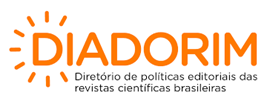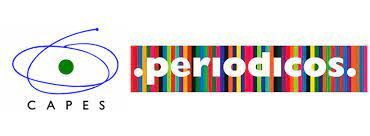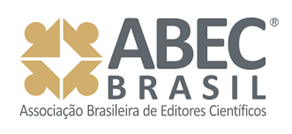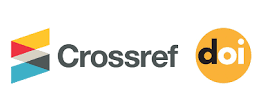BUILDING A SUBMARINE: THE ANALYSIS OF SCIENTIFIC ARGUMENTS THROUGH AN INVESTIGATIVE TEACHING SEQUENCE
DOI:
https://doi.org/10.22407/2176-1477/2023.v14.2215Keywords:
Investigative Teaching Sequence, Submarine, DensityAbstract
This paper presents the results of an experimental investigative activity conducted with 24 fourth-grade students at a public school in Curitiba, Brazil. The research aimed to analyze the students' arguments during the implementation of an Investigative Teaching Sequence (ITS) regarding the concept of density based on the operation of a submarine. The qualitative methodology involved analyzing video recordings of the teacher's inferences and the students' arguments throughout the ITS process. The sequence began with hypothesis generation, followed by the four stages proposed by Carvalho et al. (2013): 1) Material distribution and problem proposition; 2) Identification and exploration of students' ideas/predictions; 3) Development of possible action plans and experimentation of the planned activities; and 4) Writing and drawing. The analyzed data revealed that investigative experimentation promotes active knowledge acquisition as students engage in the entire process, constructing the concept of density through practical experience. The analyzed data allowed us to realize that investigative experimentation actively promotes knowledge acquisition as students engage in the entire process, constructing the concept of density through practical application. Furthermore, the Investigative Teaching Sequence (ITS) provided students with the development of scientific argumentation as their knowledge intertwined among their peers in search of a resolution to the proposed problem.
References
CARVALHO, A. M. P.; VANNUCCHI, A. I.; BARROS, M. A.; GONÇALVES, M. E. R.; REY, R. C. Ciências no Ensino Fundamental: o conhecimento físico. São Paulo: Scipione, 2009.
CARVALHO, A. M. P. O ensino de Ciências e a proposição de Sequências de Ensino Investigativas. In: CARVALHO, A. M. P. (org.). Ensino de Ciências por Investigação: condições para implementação em sala de aula. São Paulo: Cengage Learning, 2013.
CARVALHO, A. M. P.; SASSERON, L. H. Alfabetização científica: uma revisão bibliográfica. Investigações em Ensino de Ciências, v. 16, n. 1, p. 59-77, 2001.
COSTA, A. Desenvolver a capacidade de argumentação dos estudantes: um objeto pedagógico fundamental. Revista Ibero Americana de Educação, v. 6, n. 5, jun. 2008.
CHASSOT, A. Alfabetização científica: uma possibilidade para a inclusão social. Revista Brasileira de Educação, Rio de Janeiro, n. 22, p. 89-100, 2003.
DELIZOICOV, D.; LORENZETTI, L. Alfabetização científica no contexto das séries iniciais. Ensaio, v. 3, n. 1, jun. 2001.
KRUPCZAK, C.; LORENZETTI, L.; AIRES, J. A. Controvérsias sociocientíficas como forma de promover os eixos da alfabetização científica. Tear: Revista de Educação, Ciência e Tecnologia, v. 9, n. 1, p. 1-20, 2020.
MACHADO, V. F.; SASSERON, L. H. As perguntas em aulas investigativas de Ciências: a construção teórica de categorias. Revista Brasileira de Pesquisa em Educação em Ciências, v. 12, n. 2, p. 29-44, 2012.
MALHEIRO, J. M. S. Atividades experimentais no ensino de Ciências: limites e possibilidades. ACTIO: Docência em Ciência, v. 1, n. 1, p. 107-126, 2016.
MALHEIRO, J. M. S.; ROCHA, C. J. T.; ALMEIDA, W. N. C.; PAULETTI, F. Popularização da Ciência: uma análise de Atividade Experimental Investigativa em um Clube de Ciências. In: DREHMER-MARQUES, K. C.; MARQUES, J. F. Z.; RODRIGUES-MOURA, S. (org.). Iniciação Científica em Ciências da Natureza na Educação Básica: abordagens, teorias e práticas, v. 1, p. 357-378. Cruz Alta (RS): Editora Ilustração, 2021. DOI 10.46550/978-65-88362-77-8. Disponível em: https://www.editorailustracao.com.br/livro/iniciacao-cientifica-em-ciencias-da-natureza-na-educacao-basica Acesso em: 12 jun. 2023.
SASSERON, L. H. Alfabetização científica no ensino fundamental: estrutura e indicadores deste processo em sala de aula. 2008. Tese (Doutorado) – Universidade de São Paulo, São Paulo, 2008. SHEN, B. S. P. Scientific literacy: public understanding of science is becoming vitally needed in developing and industrialized countries alike. American Scientist, New Haven, v. 63, n. 3, p. 265-268, maio/jun. 1975.
Downloads
Published
How to Cite
Issue
Section
License
Copyright (c) 2023 Vanessa Simões da Silva Oliveira, Vanessa Alessandra Crefta Bozza, Fabiana Pauletti, João Manuel da Silva Malheiro

This work is licensed under a Creative Commons Attribution-NonCommercial 4.0 International License.
O autor responsável pela submissão representa todos os autores do artigo, e se compromete a enviar como documento suplementar uma carta de consentimento com a assinatura de todos os autores informando que tem a permissão para a submissão do texto assim como assegura que não há violação de direitos autorais e nem qualquer tipo de plágio (incluindo autoplágio).









